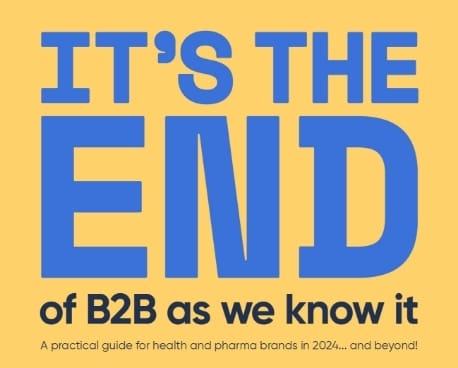As we know, the COVID-19 pandemic has been a catalyst for digital transformation and a huge change for most healthcare providers.
Various lockdowns and months of uncertainty have forced many healthcare providers to adapt quickly to the ‘new normal’ — radically changing how they work, provide services and interact with consumers. And while challenging, the pandemic and the ensuing changes have altered the healthcare landscape irreversibly.
To survive (and thrive), healthcare providers need to evolve and keep ahead of change.
As we enter the third year of the pandemic, we explore some insights which you can use to improve your online presence and deliver a digital experience your patients actually want. By focusing on creating a positive and patient-centred digital experience, you can drive satisfaction, reduce attrition and increase revenue.
In this article, we’ll draw on the findings of the 2021 PatientPop survey which explores patient behaviour and preferences in the new era of digital healthcare to predict why great digital patient experiences will matter more than ever in 2022.
Digital interactions favoured over in-person
COVID has rapidly accelerated how healthcare providers engage with patients outside of the traditional practice setting.
Over 50% of people now prefer to use digital methods of communication when it comes to their healthcare. From scheduling an appointment to asking questions and paying medical fees, patients want experiences that are fast, reliable and intuitive.
And telehealth is a trend that is here to stay, long after the pandemic has eased. A global survey conducted to explore telehealth adoption found that 63% of respondents who had used telehealth in the past plan to increase their use of such services, even after the pandemic ends.
Aligning the digital experience with the in-person experience
Patients are increasingly demanding convenience and speed through their healthcare journey.
This doesn’t just refer to wait times and healthcare access but also encompasses a patient’s digital experience. Clunky, unresponsive and out-of-date websites won’t cut it anymore — patients expect to be able to make an enquiry and book an appointment online as a bare minimum.
To succeed in a digital capacity, you need to ask yourself — how can you streamline the booking and payment process and reduce the time patients have to wait from making an enquiry to booking an appointment?
A clinic management system can help with documentation, scheduling and various other administrative tasks. But ultimately, it helps to free up clinicians and staff members to provide the best possible customer experience for your patients.
Patient journeys start online
Unsurprisingly, three-quarters of people start their search for a healthcare professional online.
This is why having a solid online presence is so critical. Your website is an online window through which prospective patients can learn about your products or services — and decide whether you are the right healthcare provider for them. First impressions count and you need to make sure your site ticks all the boxes from a UX (user experience) perspective.
Put simply, if your site is outdated and slow, users will just click away. Likewise, if it is full of hard-to-read jargon that patients can’t understand, or it is so light on content that it leaves readers confused about what is being offered, then you are going to lose prospective clients.
It’s also worth keeping in mind that online browsing using mobile devices makes up over half of website traffic. Make sure your website is optimised for mobile so you’re not losing potential patients due to bad mobile experiences.
A robust SEO strategy also comes into play here to ensure your site is found online. There’s no point investing in a great website if it can’t be found — you need to be sat at the top of the SERPs so that you’re the first thing your prospective patients see. This is where a good content strategy, coupled with paid advertising, can work wonders.
Feedback and reviews are critical for online reputation
With 74% of people finding online reviews influential when making healthcare choices, you certainly don’t want to underestimate their power.
Reviews hugely influence our behaviour and guide our decision-making. When we shop or research online, we rely on reviews, recommendations and feedback before making a decision. Social proof often plays a crucial part in the consumer journey, especially when it comes to something as important as healthcare.
Not only do patient reviews provide a level of social proof and reassurance to patients, but they also contribute to your search ranking — and in particular, your visibility in local search results.
When a user searches for a term that brings up local results, these results are categorised by Google based on the star rating a practitioner has. This means that sites that are both relevant to the searched keyword and have accumulated high star ratings make their way into a displayed list of the top three or four results. The rest of the results for local search can be viewed by clicking ‘View all’, but how many users bother doing that?
Here are some of our tips for maximising reviews.
Ask your patients for reviews
Be proactive in collecting patient feedback and asking your patients to leave online reviews. The more patients you ask, the more reviews you will receive — which can be added as testimonials to your site and used to boost your brand reputation.
There are lots of ways you can collect patient feedback and insight. Some of the ways we’d recommend include:
- Email surveys
- In-person questionnaires
- Feedback forms
- Opportunities to submit feedback in person and online
- Use of social media to gather feedback
- Traditional phone calls or texts
Make it easy for patients to leave feedback
If you’re asking patients for feedback, try to make their life as easy as possible when doing so. After all, they’re doing you a favour by giving you valuable insight into the customer experience.
The feedback process should be simple, obvious and accessible — a feedback form or a direct link to a review site. Aim to ask clear and direct questions to guide patient feedback, and make sure you send your request soon after their appointment or treatment, while the experience is still fresh in their memory.
Respond to reviews
Responding to reviews shows you care about your patients’ experience.
Make sure you respond to reviews — especially bad ones! This is your chance to showcase how responsive you are and demonstrate how quickly and efficiently your organisation can solve problems.
Depending on who is replying to reviews and feedback, ensure you train your team on how to respond to negative reviews online. Training and best practice guidelines can help to mitigate any further problems and give your customers a more positive overall experience
Use trusted review sites
In a healthcare setting, getting your own feedback directly from your patient isn’t enough. Your patient feedback needs to have credibility, which is where trusted review sites such as Doctify, RealSelf, Google, IWantGreatCare and Top Doctors come in.
These reviews sites are valuable hubs for high-quality healthcare information and user reviews — sending a clear signal to prospective patients (and search engines) that you are a trustworthy, legitimate healthcare provider.
If you haven’t started collecting feedback and reviews, make this a priority this year.
Summary
If we don’t modernise the digital patient experience then we lose patients. The best healthcare marketing agencies will help you keep up with the pace of digital transformation. Medico has the digital marketing expertise to help you navigate change and own the digital patient experience.






